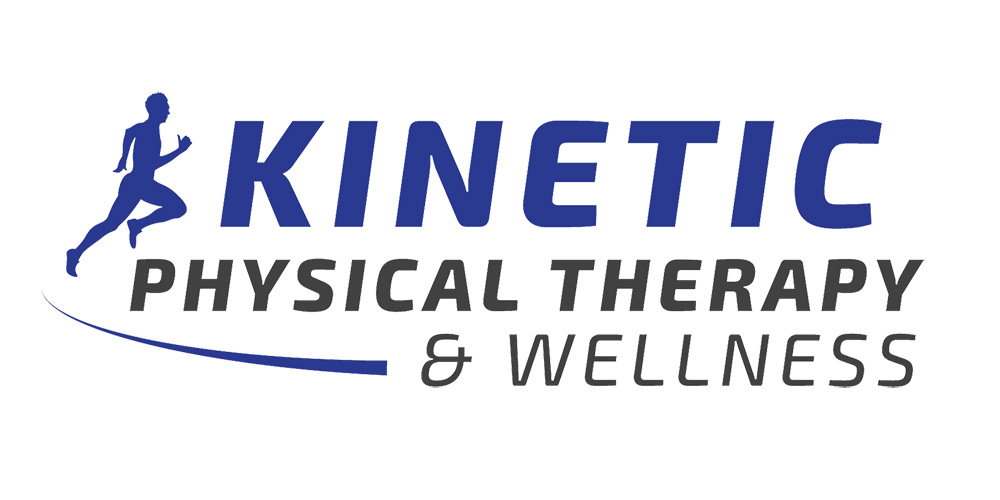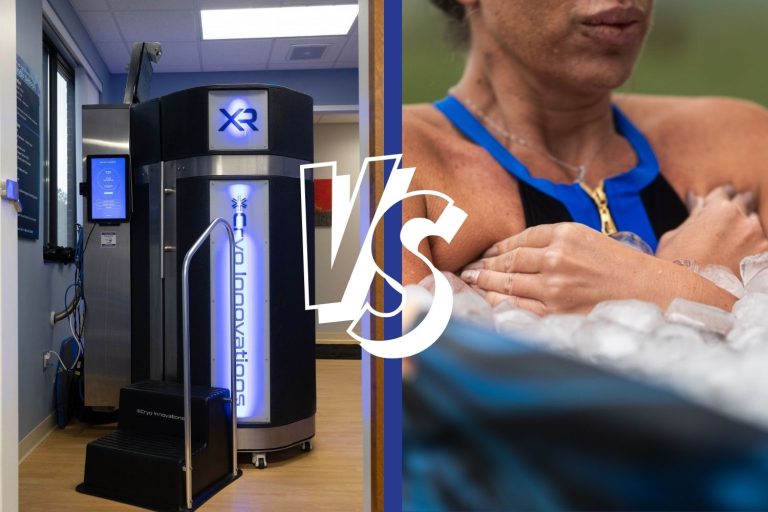

The Role of Occupational Therapy in Post-Surgical Rehabilitation
Recovering from surgery can be a challenging journey, but with the right support and strategies, it’s possible to regain independence and improve quality of life. Post-surgical rehabilitation plays a critical role in this process, and occupational therapy is a cornerstone of achieving successful outcomes. At Kinetic Physical Therapy and Wellness, we specialize in helping patients recover with personalized care plans tailored to their unique needs.
Why Post-Surgical Rehabilitation is Essential
Surgery often leads to temporary or permanent physical limitations, making daily tasks more difficult. Post-surgical rehabilitation helps bridge the gap between medical recovery and a return to normal life. Through targeted exercises and strategies, patients can rebuild strength, mobility, and confidence. Occupational therapy is particularly vital for addressing challenges that affect day-to-day activities, enabling patients to regain their independence.
Key Occupational Therapy Strategies for Post-Surgical Rehabilitation
- Comprehensive Assessment and Goal Setting
Every successful post-surgical rehabilitation plan begins with a detailed assessment by an occupational therapist. This evaluation identifies the patient’s current abilities, challenges, and recovery goals. By understanding the unique needs of each individual, therapists can design a customized plan to optimize recovery.
- Pain Management and Swelling Reduction
Post-surgical pain and swelling can limit mobility and hinder recovery. Occupational therapy incorporates techniques to manage discomfort and promote healing. This may include gentle exercises, manual therapy, and the use of assistive devices to reduce strain on the affected areas.
- Restoring Mobility and Strength
Regaining physical strength and mobility is a central goal of post-surgical rehabilitation. Occupational therapy includes tailored exercises to improve range of motion, rebuild muscle strength, and enhance coordination. For instance, patients recovering from joint replacement surgery might focus on flexibility exercises and weight-bearing activities to restore function.
- Adapting Daily Activities
Post-surgical limitations can make routine tasks like dressing, cooking, or grooming more difficult. Occupational therapists provide practical solutions, such as recommending adaptive tools or teaching alternative techniques to perform these activities safely and independently.
Specialized Approaches in Post-Surgical Rehabilitation
Rehabilitation After Orthopedic Surgery
Orthopedic surgeries, such as hip or knee replacements, require specialized rehabilitation to restore mobility and reduce the risk of complications. Occupational therapy focuses on improving joint function, reducing pain, and teaching patients how to navigate their environment safely.
Recovery Following Neurological Surgeries
Patients recovering from neurological procedures often face unique challenges, including impaired motor skills or cognitive changes. Post-surgical rehabilitation through occupational therapy addresses these issues with targeted exercises and cognitive training to help patients regain independence.
Hand and Upper Extremity Rehabilitation
Surgeries involving the hands or upper extremities can significantly impact daily life. Occupational therapists specialize in hand therapy, which includes exercises to improve dexterity, strength, and fine motor skills. Patients learn how to perform essential tasks and reduce the risk of reinjury.
The Benefits of Occupational Therapy in Post-Surgical Rehabilitation
Faster Recovery
Engaging in post-surgical rehabilitation with a skilled occupational therapist can accelerate the recovery process. By addressing physical and functional challenges early, patients can achieve better outcomes in a shorter timeframe.
Enhanced Quality of Life
Post-surgical rehabilitation goes beyond physical recovery; it’s about regaining the ability to enjoy life. Occupational therapy equips patients with the tools and confidence they need to resume their favorite activities and maintain independence.
Prevention of Future Complications
Proper rehabilitation reduces the risk of post-surgical complications, such as stiffness, muscle weakness, or secondary injuries. Occupational therapists ensure that patients develop safe and effective habits to support long-term health and well-being.
Why Choose Kinetic Physical Therapy and Wellness?
At Kinetic Physical Therapy and Wellness, we are committed to providing expert care, personalized treatment, and lasting results. Our team of experienced therapists works closely with patients to develop customized post-surgical rehabilitation plans. By combining advanced techniques with a compassionate approach, we empower patients to achieve their recovery goals.
Frequently Asked Questions About Post-Surgical Rehabilitation
How soon after surgery should I start post-surgical rehabilitation?
The timeline for starting rehabilitation varies depending on the type of surgery and your doctor’s recommendations. In many cases, patients can begin occupational therapy within days or weeks of surgery to maximize recovery outcomes.
Is occupational therapy covered by insurance?
Most insurance plans cover occupational therapy as part of post-surgical rehabilitation. It’s best to consult your provider for specific details about your coverage.
What can I expect during an occupational therapy session?
During a session, your occupational therapist will guide you through exercises and activities tailored to your recovery goals. They may also provide education on pain management, adaptive tools, and strategies for improving daily function.
Take the First Step Towards Recovery
Post-surgical rehabilitation is a vital component of the healing process, and Kinetic Physical Therapy and Wellness is here to help you every step of the way. Contact us today to learn more about our occupational therapy services and start your journey to a healthier, more independent life.
Please Share
categories
Recent Posts

The Role of Occupational Therapy in Post-Surgical Rehabilitation
Recovering from surgery can be a challenging journey, but with the right support and strategies, it’s possible to regain independence and improve quality of life. Post-surgical rehabilitation plays a critical role in this process, and occupational therapy is a cornerstone of achieving successful outcomes. At Kinetic Physical Therapy and Wellness, we specialize in helping patients recover with personalized care plans tailored to their unique needs.
Why Post-Surgical Rehabilitation is Essential
Surgery often leads to temporary or permanent physical limitations, making daily tasks more difficult. Post-surgical rehabilitation helps bridge the gap between medical recovery and a return to normal life. Through targeted exercises and strategies, patients can rebuild strength, mobility, and confidence. Occupational therapy is particularly vital for addressing challenges that affect day-to-day activities, enabling patients to regain their independence.
Key Occupational Therapy Strategies for Post-Surgical Rehabilitation
- Comprehensive Assessment and Goal Setting
Every successful post-surgical rehabilitation plan begins with a detailed assessment by an occupational therapist. This evaluation identifies the patient’s current abilities, challenges, and recovery goals. By understanding the unique needs of each individual, therapists can design a customized plan to optimize recovery.
- Pain Management and Swelling Reduction
Post-surgical pain and swelling can limit mobility and hinder recovery. Occupational therapy incorporates techniques to manage discomfort and promote healing. This may include gentle exercises, manual therapy, and the use of assistive devices to reduce strain on the affected areas.
- Restoring Mobility and Strength
Regaining physical strength and mobility is a central goal of post-surgical rehabilitation. Occupational therapy includes tailored exercises to improve range of motion, rebuild muscle strength, and enhance coordination. For instance, patients recovering from joint replacement surgery might focus on flexibility exercises and weight-bearing activities to restore function.
- Adapting Daily Activities
Post-surgical limitations can make routine tasks like dressing, cooking, or grooming more difficult. Occupational therapists provide practical solutions, such as recommending adaptive tools or teaching alternative techniques to perform these activities safely and independently.
Specialized Approaches in Post-Surgical Rehabilitation
Rehabilitation After Orthopedic Surgery
Orthopedic surgeries, such as hip or knee replacements, require specialized rehabilitation to restore mobility and reduce the risk of complications. Occupational therapy focuses on improving joint function, reducing pain, and teaching patients how to navigate their environment safely.
Recovery Following Neurological Surgeries
Patients recovering from neurological procedures often face unique challenges, including impaired motor skills or cognitive changes. Post-surgical rehabilitation through occupational therapy addresses these issues with targeted exercises and cognitive training to help patients regain independence.
Hand and Upper Extremity Rehabilitation
Surgeries involving the hands or upper extremities can significantly impact daily life. Occupational therapists specialize in hand therapy, which includes exercises to improve dexterity, strength, and fine motor skills. Patients learn how to perform essential tasks and reduce the risk of reinjury.
The Benefits of Occupational Therapy in Post-Surgical Rehabilitation
Faster Recovery
Engaging in post-surgical rehabilitation with a skilled occupational therapist can accelerate the recovery process. By addressing physical and functional challenges early, patients can achieve better outcomes in a shorter timeframe.
Enhanced Quality of Life
Post-surgical rehabilitation goes beyond physical recovery; it’s about regaining the ability to enjoy life. Occupational therapy equips patients with the tools and confidence they need to resume their favorite activities and maintain independence.
Prevention of Future Complications
Proper rehabilitation reduces the risk of post-surgical complications, such as stiffness, muscle weakness, or secondary injuries. Occupational therapists ensure that patients develop safe and effective habits to support long-term health and well-being.
Why Choose Kinetic Physical Therapy and Wellness?
At Kinetic Physical Therapy and Wellness, we are committed to providing expert care, personalized treatment, and lasting results. Our team of experienced therapists works closely with patients to develop customized post-surgical rehabilitation plans. By combining advanced techniques with a compassionate approach, we empower patients to achieve their recovery goals.
Frequently Asked Questions About Post-Surgical Rehabilitation
How soon after surgery should I start post-surgical rehabilitation?
The timeline for starting rehabilitation varies depending on the type of surgery and your doctor’s recommendations. In many cases, patients can begin occupational therapy within days or weeks of surgery to maximize recovery outcomes.
Is occupational therapy covered by insurance?
Most insurance plans cover occupational therapy as part of post-surgical rehabilitation. It’s best to consult your provider for specific details about your coverage.
What can I expect during an occupational therapy session?
During a session, your occupational therapist will guide you through exercises and activities tailored to your recovery goals. They may also provide education on pain management, adaptive tools, and strategies for improving daily function.
Take the First Step Towards Recovery
Post-surgical rehabilitation is a vital component of the healing process, and Kinetic Physical Therapy and Wellness is here to help you every step of the way. Contact us today to learn more about our occupational therapy services and start your journey to a healthier, more independent life.
Please Share







